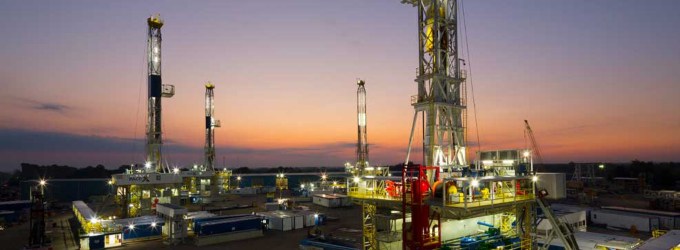(Bloomberg) – U.S. shale executives expect to drill significantly fewer wells this year than planned at the start of 2025, as lower oil prices and uncertainty around President Donald Trump’s tariffs hurt profits, according to a Federal Reserve Bank of Dallas survey.

Almost half of oil executives said they expect to drill fewer wells in 2025 than planned at the start of the year, according to second-quarter survey results released Wednesday. For “large” exploration and production firms — producing 10,000 bpd or more — 42% said they expected a significant decrease in the number of wells drilled. Most firms said that tariffs have increased the cost of drilling and completing a new well by 4.01% to 6%.
The responses highlight the headwinds facing domestic production, leading industry executives to take a cautious approach to drilling and spending in direct contrast to Trump’s “drill, baby, drill” rhetoric. Crude prices have fallen as Trump’s tariffs threaten to slow the global economy, while OPEC+ accelerates the revival of its production into a market that was already well supplied.
“It’s hard to imagine how much worse policies and D.C. rhetoric could have been for U.S. E&P companies,” an unidentified executive said in the report. “We were promised by the administration a better environment for producers but were delivered a world that has benefitted OPEC to the detriment of our domestic industry.”
A majority of executives surveyed said they expect Trump’s tariffs on imported steel to weigh on customer demand over the next 12 months.
Some executives called for U.S. steel producers to increase output, as the uncertainty in casing prices for essential steel tubing is delaying drilling activity. For service companies, tariffs mean they have to pass the cost on to their customers, one respondent said.
The Dallas Fed’s quarterly surveys are widely read for the anonymous comments that offer an unfiltered view on factors impacting the oil industry. The bank’s region covers Texas, northern Louisiana and southern New Mexico.
“It is a tough marketplace right now,” said one respondent. Most firms are holding contractors well below what they need to remain profitable, the respondent added.
Oilfield service companies often provide the first indication of an industry downturn because they’re the ones hired to drill and frack new wells. “There is a concern some of our vendors will not survive,” one oil executive said.
“Our customers (exploration and production firms, or E&Ps) are refusing to help absorb these costs,” one oilfield service executive said. “E&Ps continue to speak out of both sides of their mouths. They talk partnership but are treating their vendors like second-class citizens, pushing OFS to unsustainable margins.”

